Thad Speaks: Thaddeus Matula on the impact of 'Pony Excess'
In Part 4 of a five-part, extended Q&A series, the director of 'Pony Excess' chats with The HillTopics to discuss today's topic regarding SMU athletics.
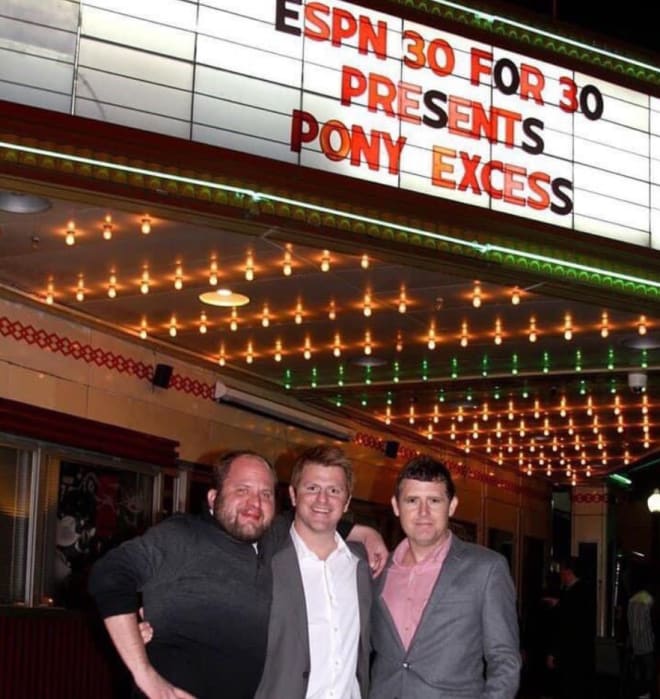
Thaddeus D. Matula is no stranger among SMU circles. An Emmy and Peabody Award-winning director, Matula is responsible for directing the highly successful ESPN documentary "Pony Excess," which focused on the death penalty in the 1980s.
Matula is a fan of all things SMU, and he took time out of his busy schedule to speak with The HillTopics for a five-part extended question-and-answer session.
TODAY'S QUESTION:
This year is the 10th anniversary of "Pony Excess." What has that film done for you and done for SMU overall?
Oh boy. "Pony Excess." I grew up wanting to tell the story of the SMU football death penalty. It was personal. I was 8 when the death penalty happened.
When you're that age, everything is uniquely personal. Something was taken away from me, and the people who took it away said we were cheaters. And then we didn't have this thing that was mine -- for two years. When you're 8-10 years old, a year is forever. So I had two forevers of not having something I dearly loved.
By the way, getting older I've come to realize that's why you often stick to being a sports fan. Because even as an adult, these teams are ours. We understand a little better that we share them ... but just like the 8-year-old, these teams are ours.
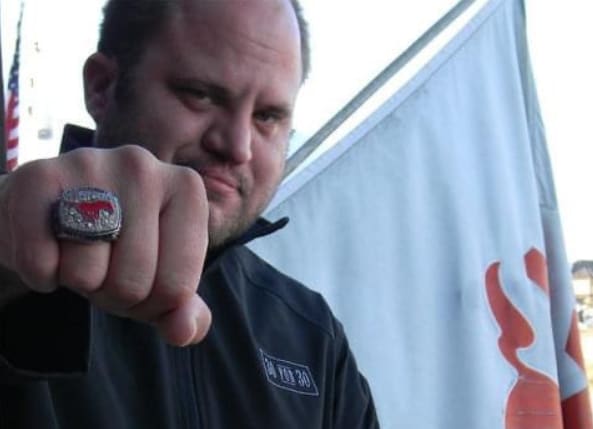
Growing up, I don't remember a time that I didn't want to be a filmmaker, so even at ages 8, 9 and 10, I was already looking forward to making a movie about it someday. I had always intended to tell the story as a scripted film -- you know, your traditional movie movie with actors -- but regardless of the final documentary format, the fact that I ended up doing it on such a big stage to such great success is ... amazing.
It comes with a whole gamut of emotions as I sit here and think about it. And when I let those feelings sink in, it is humbling. What a gift to be able to have accomplished this impossible dream.
Professionally there isn't a metric to compare pre-"Pony Excess" me to post-"Pony Excess" me. One is the guy full of mirth and ennui waxing poetic, like Marlon Brando in "On the Waterfront": "I coulda been a contender, I coulda been somebody" after having not made a film in eight years (I had great success in film school at SMU, including a science fiction film I made as a sophomore playing nationally on PBS the following year).
The other is the guy who, a scant two years later, saw his film debut after the Heisman Trophy ceremony, landing as the highest-rated documentary premier in ESPN's history, while later netting a Peabody Award. That was stratospheric.
To put it into Hollywood terms, people started taking my calls. Didn't mean they were calling me ... yet. But all new doors were opened.
As an aside, the Peabody thing is mind-boggling. Believe me, you don't grow up wanting to be a filmmaker expecting to win -- or even think about winning -- a journalism award. It's a testament to all the other films in the series. And as for "Pony Excess" specifically: The award belongs to all the people who worked on the film.
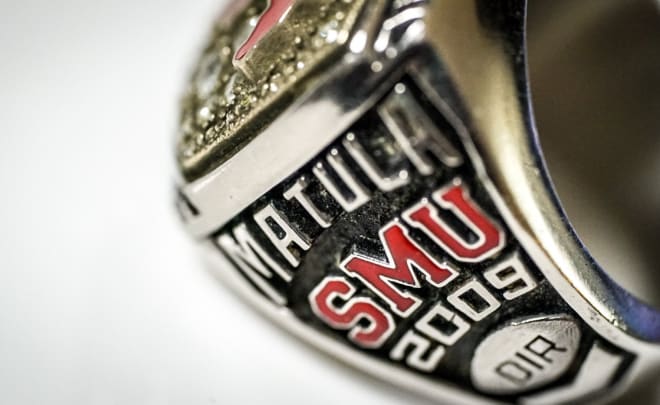
Personally, what "Pony Excess" did for me was to reveal a path to joy. I can sum it up quickly by saying when you get what you thought you always wanted and happiness doesn't come with it, it is devastating. Here I was a filmmaker -- not an "aspiring" filmmaker, not a "young" filmmaker, but a "no description required" filmmaker -- and to find that that old friend misery was still there with me?
It brought me to my knees. Lower. To the bottom.
But with that bottom, I was able to discover that I had been given a gift. I am not a filmmaker, I am not good or bad because the films I make are good or bad. Whatever it is that I am, I am a vessel.
This gift I have been given, being "good" at something doesn't make me good. It's the results that are good (or bad). And I can be grateful for the gift without understanding it.
I am not the judge. I don't have to be. I am thankful. And I have discovered through that gratitude directly that it is in gratitude that we find joy.
Michelangelo has this quote that I have co-opted and live by in my work. He said, "I saw the angel in the marble, and I carved until I set him free." So now I see and I know that the films "I make," I'm not the one making them. They are out there in the ether of time space, and I can simply see them just a little better than others. Then I can bring people in and they can see some parts that I can't, and together we reveal the beauty that already exists.
And you know what? I just get to say thank you and enjoy it!
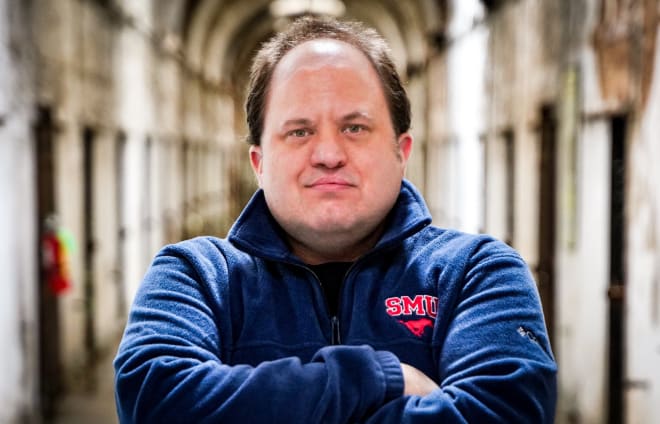
And for SMU? There was a cloud that hung over the campus, specifically its football program and, to a certain extent, basketball that was oppressive and seemingly unshakable. If you were a fan, it felt like a constant gray day.
So for most, students in the post-death penalty, pre-"Pony Excess" era just opted out of being a fan altogether. I mean, not only was it not popular to be a fan of SMU just as a Dallas resident, it wasn't popular to be a fan of the football or basketball programs as a student.
So you had mediocrity covered in a chain mail of depression surrounded by apathy. It sucked.
I'm happy that the biggest thing I think the film did for SMU is something that a current student wouldn't be able to see -- and that's pretty damn awesome. They don't know what that cloud was like -- and they won't have to.
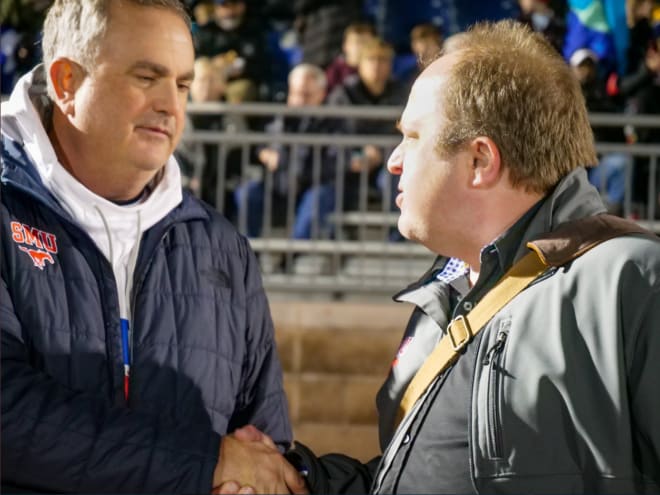
Veritas liberabit vos. That's the motto of SMU. The truth will set you free. (Direct translation: "The truth will make you free.") My goodness, we had spent 20 years running away from the truth, wanting to hide and bury it. I told everyone, let's just clear the slate. If we just say this is what happened, people will understand. People will want us to win football games.
I know I'm the one who "made the film," so accuse away of me having all kinds of bias, but my experience was that cloud was lifted. And to be fair, that's not just my experience; that's what so many people have reported back to me as well.
It's hard for me to talk about my part in this, but I do at times look at it and see that film, in many ways, gave athletics at SMU a fresh slate. And that insight -- and the part I played -- is a gift I am incredibly grateful for.
That being said, June Jones made the difference. I know the fanbase isn't quite ready to forgive him for the end of his tenure or the traditions he wanted to change. We can circle back to June as well, if you like. Because "Pony Excess," at least in the way we know it, wouldn't have happened without him.
I'll just finish this answer to say the coolest thing that happens for me is something that continues to this day -- when a current student tells me they came to SMU because of my documentary. That is unbelievable.
THAD SPEAKS ON ...
COVID-19 and college football (July 27)